The average wedding in Australia costs $35,000. This may seem like a lot of money to spend on one day, which it is, but the potential cost over the long term is so much more.
In fact, your wedding day could actually see you retire $1.3 million poorer. And that's just with an average wedding.
So, how can your wedding possibly cost this much money? The answer is simple: by missing the opportunity to invest while you're young.
An average $35,000 wedding could cost you more than $1 million by retirement.
By the time you add up the dresses and suits, the photographer, celebrant or church fees, the band, the venue and catering as well as incidental costs like travelling and accommodation, it's easy to see how an average wedding can add up to $35,000.
But what would that $35,000 add up to later on if you invested it in the share market or your super fund? Quite a lot, according to Stockspot's head of advice Sarah King.
"That $35,000 invested into an Australian share index fund, would grow to around $779,800 in 30 years and $2,194,000 in 40 years. This is based on the historical average return from the Australian share market of 10.9% p.a."
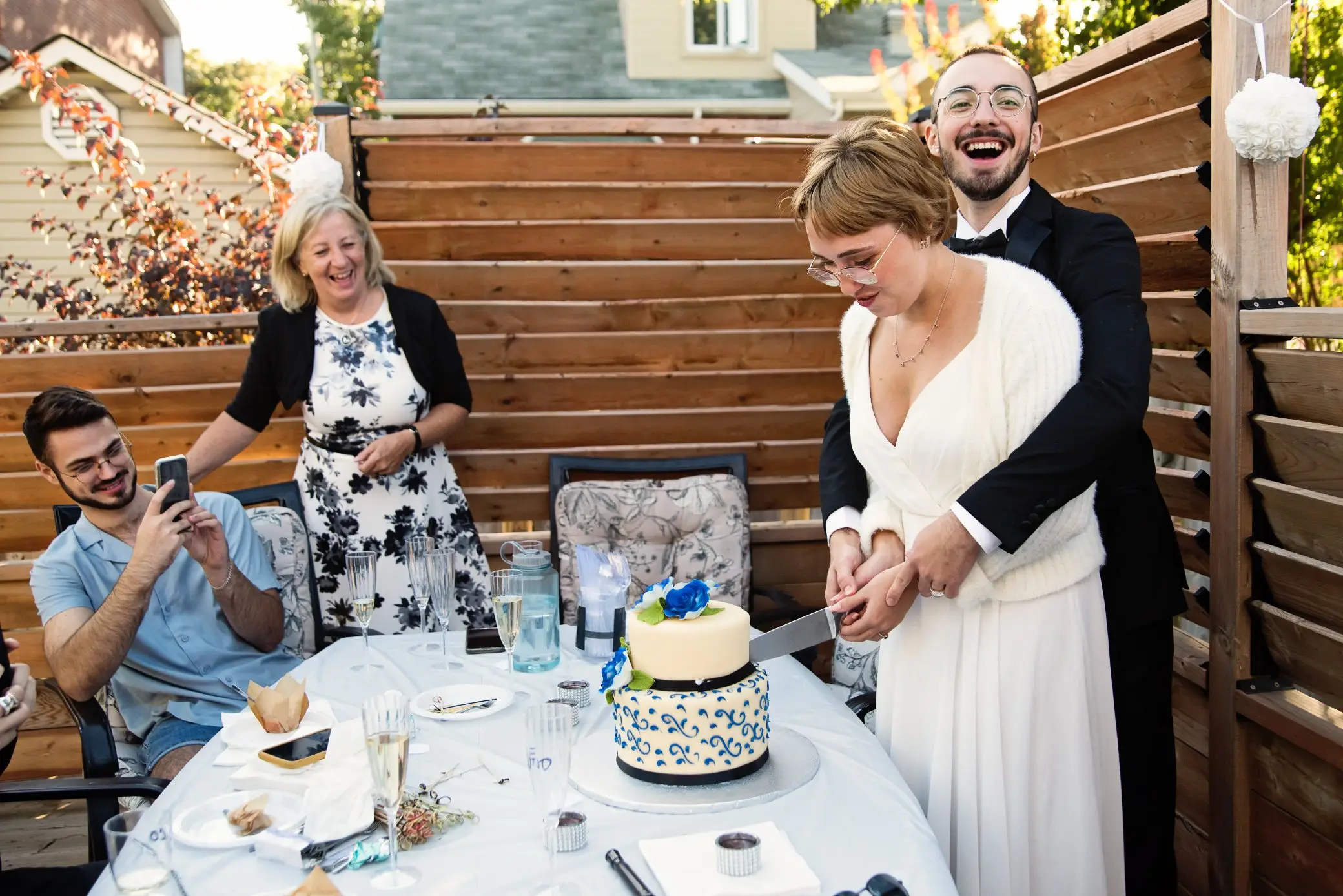
Couples are opting for smaller weddings to allow for long-term financial goals.
Yes, your wedding day is important and, let's face it, weddings are great fun. But there's no denying that it's a lot of money for one day of your life. This is why some Aussie couples are making the choice to have a scaled-back, more casual and intimate wedding day to save money for other major financial goals.
"Personally, I think it's a really wise choice," said King.
"Rather than using the majority of your savings, or even getting into debt, to fund a bigger wedding, a smaller, intimate wedding helps keep costs down and allows you to balance both short-term and long-term goals. Short term, being a beautiful intimate wedding (that's over in 24 hours), with long term, an investment portfolio that's growing and can be used to fund a future goal for you both, like a home deposit.

"That's exactly what my husband and I did. After the first major COVID lockdown, we canned our Bali wedding, opting for a super intimate Sydney wedding with just 8 of us. By keeping it small, we continued investing to save for our home deposit and didn't have to dip too much into our savings. In hindsight, it was the best decision for us as a couple, with house prices soaring ahead here in Sydney. And our wedding was still amazing!"
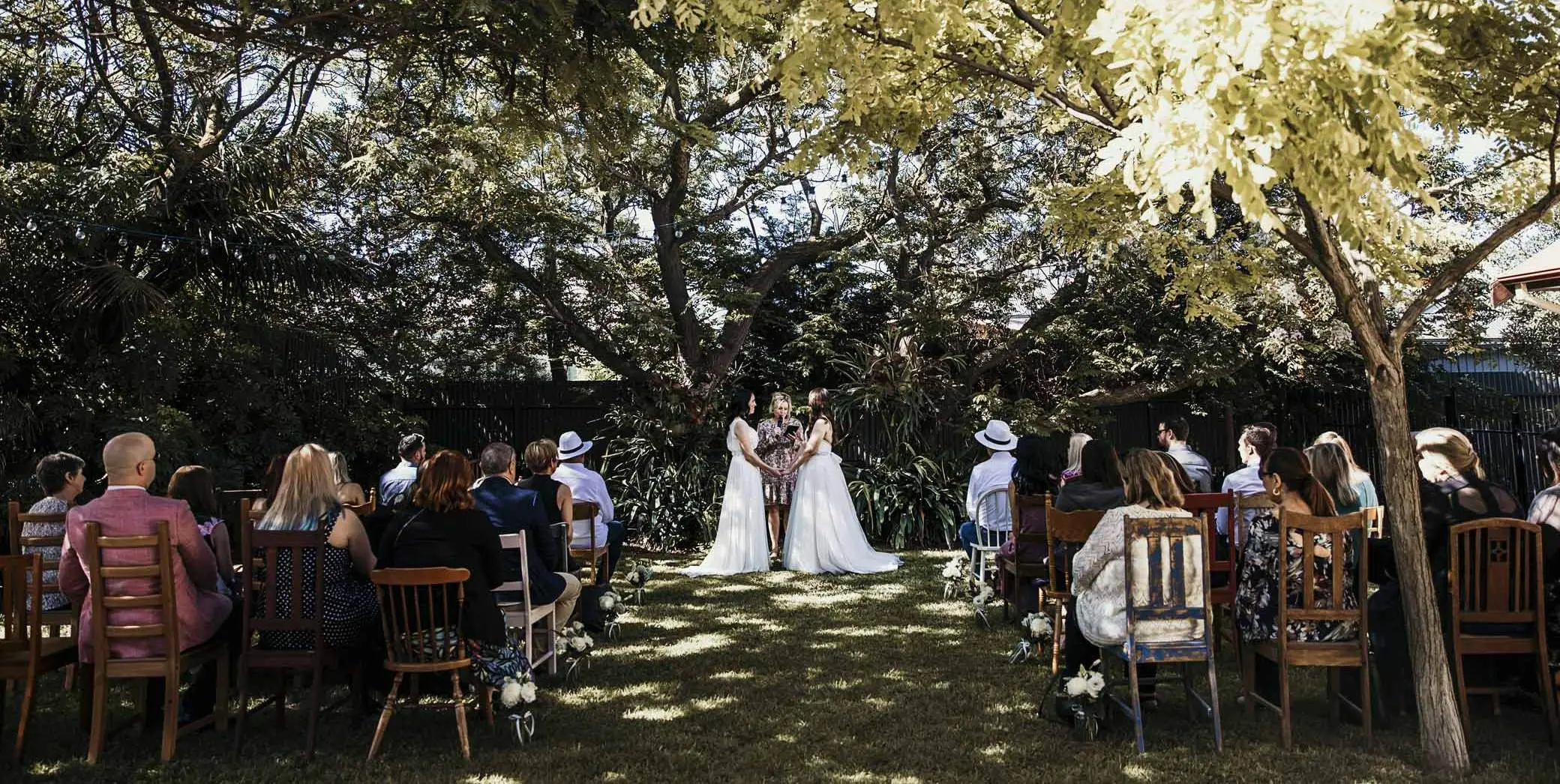
Laura and Sarah spent $10k on their wedding and invested the rest in shares.
Having it at home meant we could bring a lot of things ourselves and have lots of DIY involved. We kept it quite simple with flowers on the tables, nothing too fancy," said Sarah
"The yard already had a lot of nice trees and we just hung up some fairy lights to create that special atmosphere. We tried to not be over the top and from an environmental point of view, we didn't want to get too many things that would only be used once."
Laura and Sarah recently opted for a backyard wedding at Sarah's parents' house in Adelaide with 34 of their closest family and friends. The entire wedding cost $10,393.
Sarah said avoiding traditional wedding vendors as much as possible helped them drastically cut down on the cost.
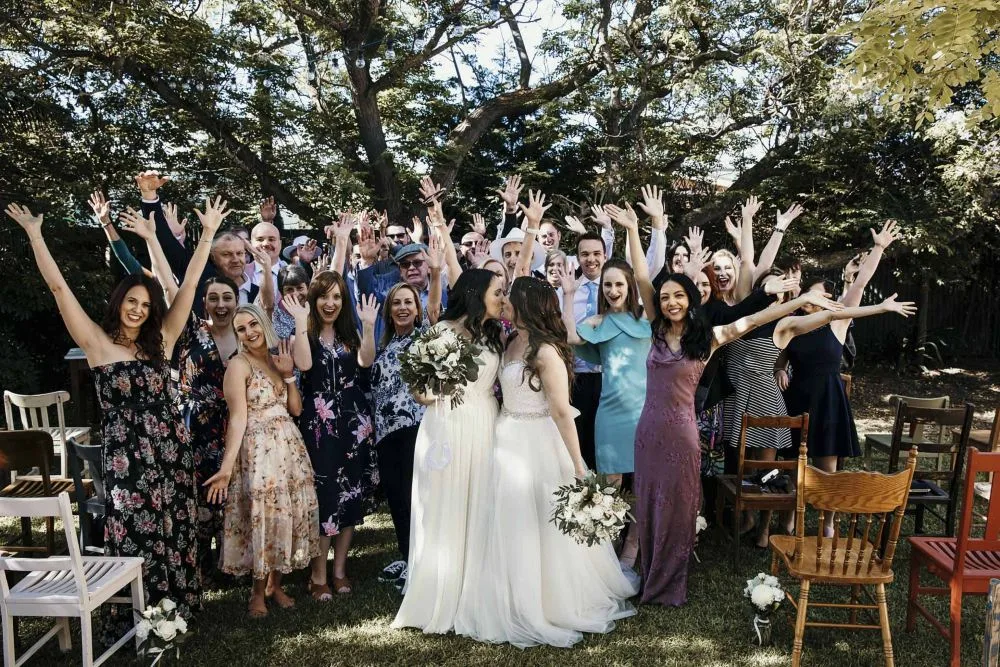
"The cake was through a friend of a friend and was $150 for ingredients. I found my dress on Facebook for $99, and Laura found hers for $300. Instead of going for a normal wedding caterer, we found a husband and wife team from Kuala Lumpur and they put on a Malaysian feast for us. The photographer was the only thing we didn't cut back on. Out of everything on the day, we thought it'd be nice to capture it in a great way.
"The day was perfect. it was everything I wanted it to be. Having a small number of people meant we could spend time with everyone. We didn't feel like we were rushing and we also got to spend time together. It was just a really relaxing day."
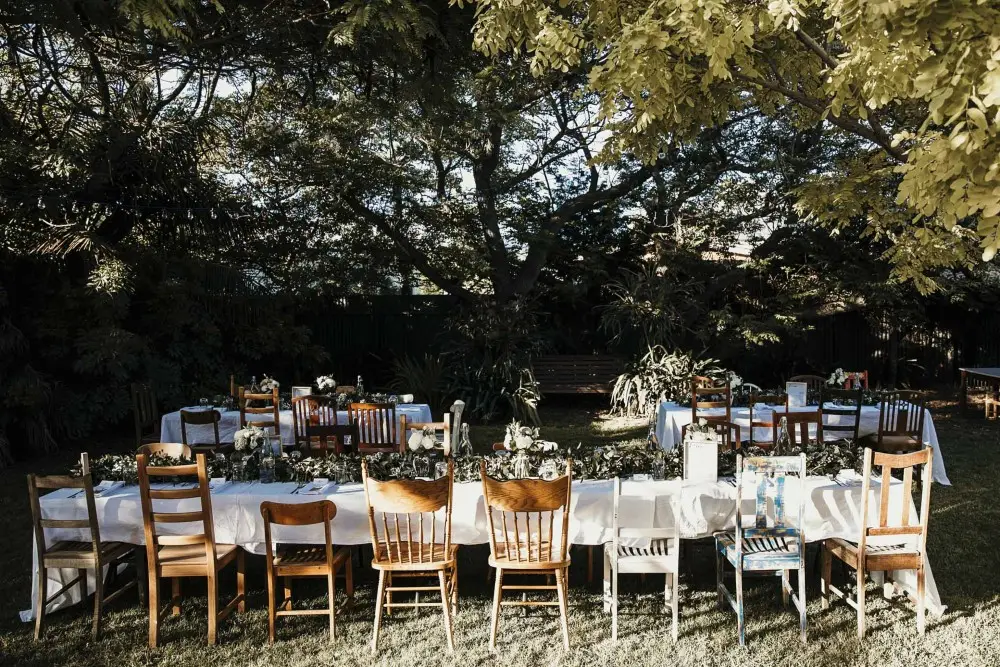
Sarah and Laura's main motivation for having a small wedding was their goal of retiring early. Thanks to their frugal lifestyle and regular investments from an early age, the pair are on their way to being able to retire within the next 5 years.
"We are very much focused on saving and are currently on the path to FIRE (financial independence retire early). So we really wanted to put as much money as possible into shares so we could start generating that passive income and building that up as early as possible. We mainly invested the money saved from having a small wedding in a mix of Vanguard index funds," said Sarah.
"We have friends who have spent $80,000 or $100,000 as they decided they wanted a wedding instead of a house deposit, or they wanted a wedding instead of starting a share portfolio. For me, I can't understand that. It's just way too much money down the drain."
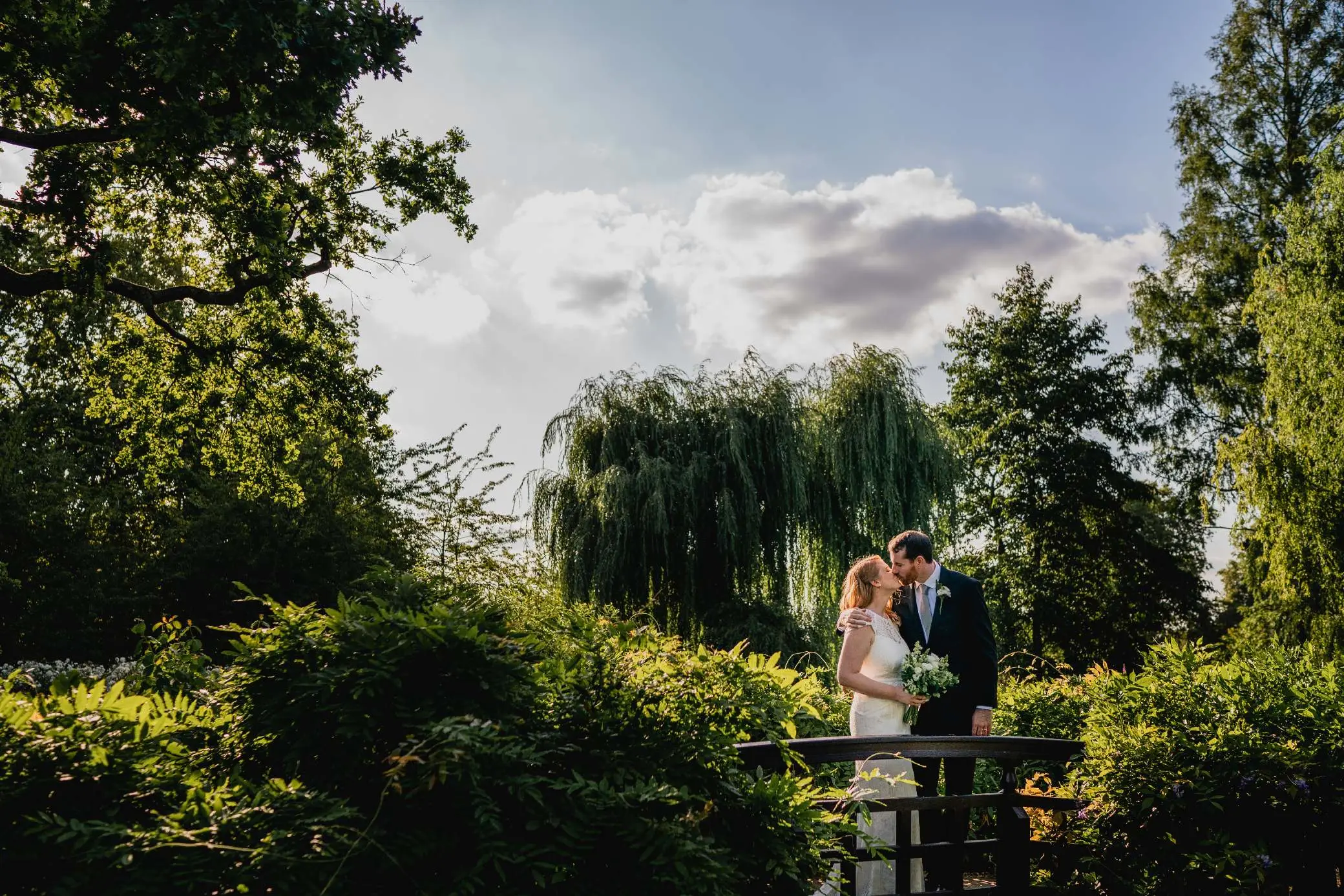
James and Erin spent $7k on their wedding and used their savings to buy their first home.
"We were saving hard at the time as we were planning to move to Australia later in the year. We moved to Australia a couple of months after we got married. One year later, we were able to buy our first home on the South Coast," James said.
"We decided against a wedding cake, expensive outfits and obviously a wedding planner given the size of our event. We used the illustration skills of a relative who generously made our wedding invitations for free. My mum bought all the flowers for us while Erin's best friend made gift bags for all the guests."
James and Erin were married in London in 2019 surrounded by 30 of their closest family and friends. The ceremony was held at a beautiful, old town hall in the city and the reception was dinner and drinks at a Scandinavian pub nearby. The entire ceremony and reception cost just £3,500, which is around AUD$7,000 – significantly less than the $35,000 average cost.
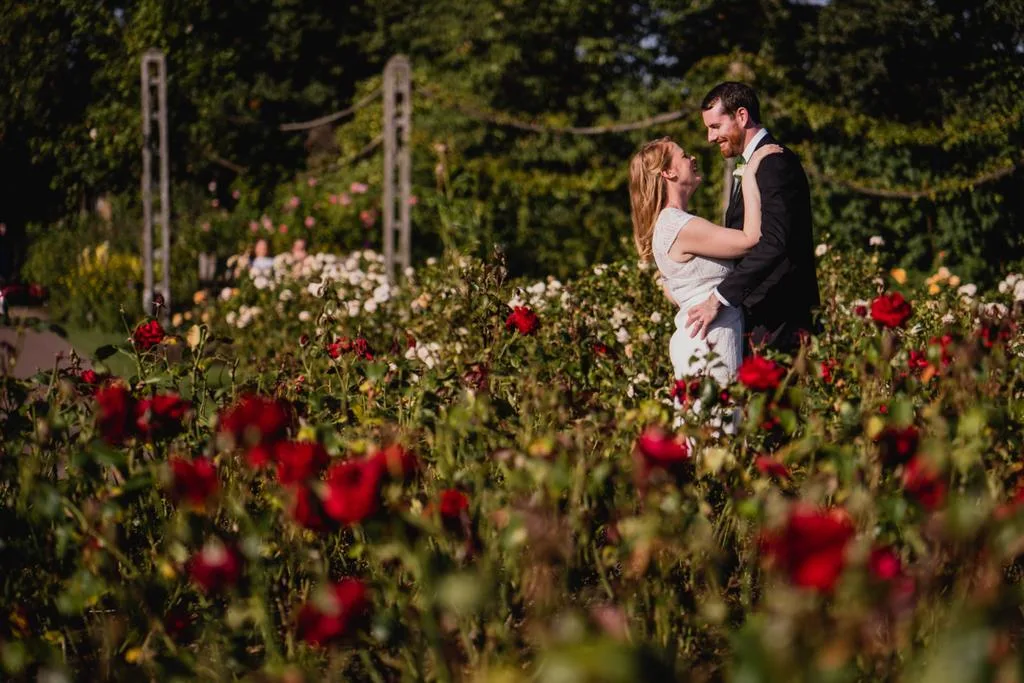
"We hired a wedding photographer who was in the early stages of his career and looking to build up his portfolio. He was fantastic, and the cost was significantly less than if we'd gone for a wedding photographer with many years of experience."
James said he and Erin chose to have a more intimate wedding for financial reasons and doing so allowed them to achieve some pretty big goals.
"If we'd spent more money on the wedding, it would have been much harder to buy our home and taken a lot longer. And there could have been an expensive knock-on effect. Realistically, we would have needed to keep saving throughout 2021, while watching house prices skyrocket across NSW. We count ourselves very fortunate to have found a place in the last few months of 2020."
While James said they wouldn't change anything about their wedding day, he did acknowledge that a smaller wedding does come with some sacrifices too.
"Being of Irish heritage, having to keep the guest list small was not easy. We didn't invite any of my Ireland or UK-based cousins. My wife only invited her immediate family over to London from Sydney. I also had a few close friends who unfortunately didn't make the cut! This was the hardest part of our decision to scale back on the size of our wedding."
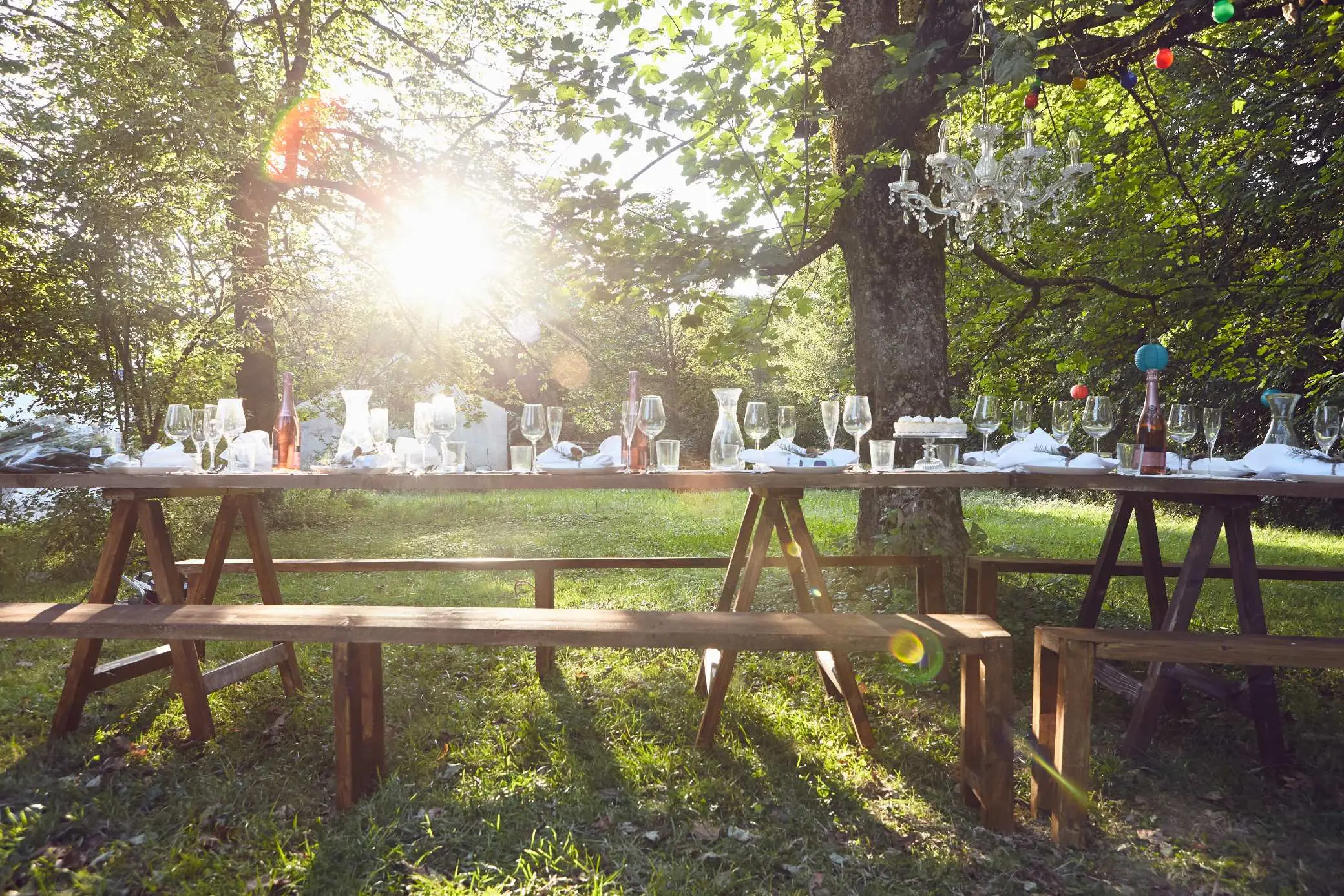
There are a number of ways you could use the money saved from a wedding to build your wealth for retirement. You could invest the money into a share portfolio, contribute the money towards your super fund or put the savings towards a house deposit.
If you're planning to buy shares or contribute to your super, Sarah King said the key is to diversify your investments and use a strategy called dollar-cost averaging when buying.
"I'd always recommend a diversified approach to investing, where you own a mix of growth investments, like Australian and global shares, and defensive investments, like bonds and gold," she said."
"The share market gets bumpy, so having defensive investments in the mix helps to smooth that out and cushion you on the downside, which you're always really thankful for when a share market dip comes."
If you're thinking of adding the money to your super fund, most Balanced, Growth and High-Growth super portfolios will automatically invest in a mix of different asset classes on your behalf to ensure your super is well diversified.
"I'd typically suggest drip-feeding smaller amounts, regularly into the market (known as dollar-cost averaging) over a few weeks or months because it removes the need to try and time the market, which we know is very difficult to get right. Instead, you average your way in gradually and get your money starting to work for you. Also if you're new to investing, it makes you feel that bit more comfortable getting started."
If you're investing in the share market, you can set up a regular transfer each month. Or if you're adding the savings into your super, you can achieve this easily by setting up a salary sacrifice arrangement where a small part of your pay is transferred to your super each payday.
But one of the biggest tips is to simply get started – don't delay.
"Starting to invest in your 20s compared to your 30s or 40s, will have a material impact on your investment balance in future years. If you're thinking about investing, start now. Time is of the essence with investing. Remember that money kept in savings over the long term is going backwards."
Has this article inspired you to put your money to work? We can help you learn how to invest in index funds and how to salary sacrifice into super to build your wealth. And if you haven't looked at your super in a while, it could be time to compare super funds and make the switch.
Ask a question
More guides on Finder
-
Budget tips for international students
There's plenty of ways to save money as an international student in Australia.
-
Alternatives to MoneyBrilliant
MoneyBrilliant is closing on 16 December 2022. Here are popular alternatives for those looking to move to a new money management app.
-
Alternatives to the Pocketbook app
Pocketbook is closing its doors in August 2022. Here are the best alternative money and personal finance apps available in Australia.
-
Budget planner: win at money
Use our free budget planner template to create a personalised budget to track your expenses so you can spend less and save more.
-
How much money should I have in savings?
See how much money people your age have in savings, and learn how to boost your savings balance if it's below average.
-
How to budget for living expenses
Living expenses may be easily managed with these five tips.
-
Free household budget template
Household budget templates are useful financial tools to help you manage your money better.
-
How to prepare your finances for a recession
How to get your debts, savings, super and your investments sorted for an economic downturn.
-
What is my net worth?
Your net worth is calculated based on the value of your assets minus your liabilities, and this figure represents your overall financial health.
-
How to save and budget for a baby
Reduce the amount of emotional rollercoasters when you're pregnant by sorting through your finances.
